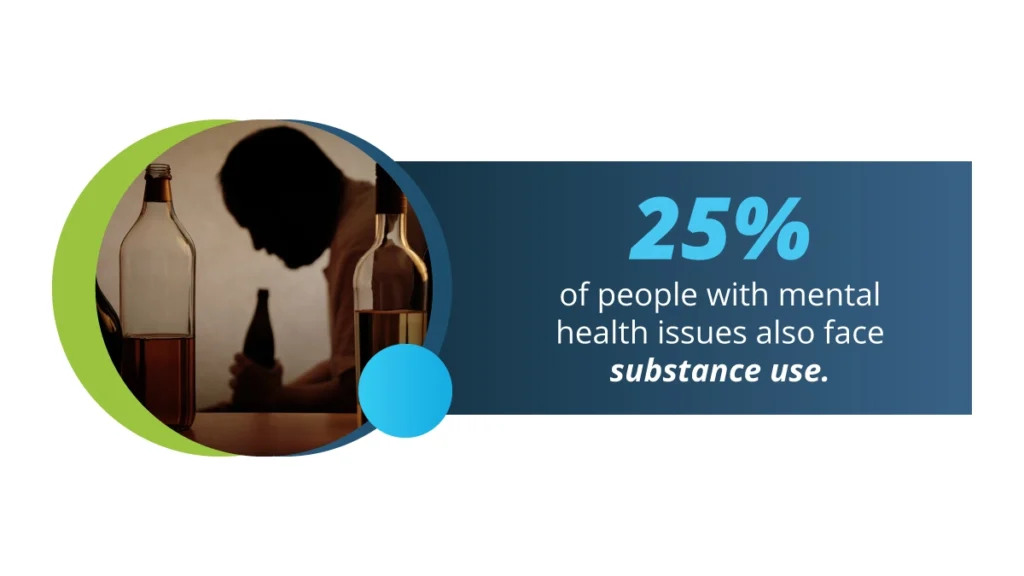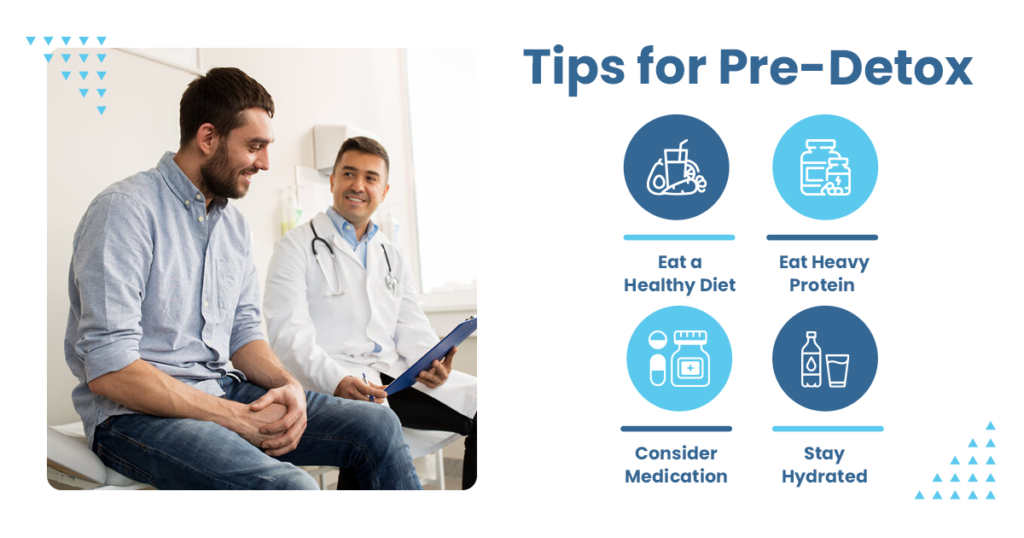It is necessary to undergo detoxification to rid the body of any traces of drugs or alcohol. Thus, the patient’s health and readiness for treatment can be verified. The goal of medical detox is to alleviate patients’ discomfort when trying to eliminate drugs, as per National Institute on Drug Abuse. There are various ways doctors can assist people with detoxing from drugs without experiencing any unpleasant symptoms.
You become physically dependent on these chemicals less and less as they depart your body. You’ll still crave them, but at this time, that will be a mental craving rather than a bodily one; stay persistent with courage. A crucial part of any treatment for substance abuse is detoxification, and you have to keep well-prep for it as well.
Anyone who deals with alcoholism should consider medical detoxification. Sometimes benzodiazepine and other addicts need it the most. Dietary habits that support your recovery can be pretty beneficial.
Eating regularly and ensuring your diet is well-balanced during and after detox is critical. A bad diet is typically the result of substance misuse, which can seriously affect your health. Let your family and friends know that your goal is to become sober.
Pre-Detox
Taking care of one’s physical well-being and preparing one’s body for achievement is vital. Abstinence-based detox is only one component of a comprehensive drug detox program. In addition, the negative must be replaced by the positive.
Making appropriate food choices is essential as you embark on a life free of alcohol and drugs. Detoxification is a difficult decision for many people. Having a strategy in place, on the other hand, can make things much more manageable.

Naltrexone Combined with Detox
As an anti-craving medicine, naltrexone has potential applications in treating various substance abuse disorders. However, depending on their symptoms or needs, a person may be given as much as 150 mg per day during detox or inpatient treatment. Alcohol and other substance abuse disorders can be treated with this FDA-approved therapy. People in recovery from alcoholism also face acute malnutrition. The detox program necessitates a well-balanced diet.
Common Deficiencies During Withdrawal and Detox
Numerous issues can arise during the alcohol and drug detox and withdrawal symptoms. Vitamin B6, thiamine, and folic acid deficits are common among alcoholics. Fluid, electrolyte, and protein imbalances are other prevalent signs of alcoholism. High blood pressure, seizures, and damage to the liver and pancreas can result from withdrawal symptoms. Any nutritional deficiencies associated with alcoholism can be restored by taking a multivitamin.
Cleansing Before a Detox
Keep hydrated to avoid headaches, fatigue, and cramps, which can all be side symptoms of dehydration. Consuming caffeine in large amounts can lead to overstimulation in the brain. The caffeine intake is to be avoided during detoxification.
According to the US Department of Health and Human Services, 25 percent with mental health issues also face substance use. Detox diets and drug detox programs are substantially different in removing toxins.
A detoxification diet aims to remove harmful toxins from your system. However, a detox diet cannot replace a drug detox program as it involves the supervision of experts. There are risks and dangers in trying to detox on your own at home.
Stay Hydrated
According to experts, taking nine to twelve glasses of water in routine will assist the liver and kidneys clear toxins from the body. Withdrawal symptoms might be made more bearable when drinking lots of water.
Protein Diet
The body of those dealing with alcohol and drug abuse are often in a state of turmoil. Protein aids in the regeneration of cells and tissues and the restoration of organs, which is why it is functional.
Lean proteins can be found in various foods, such as fish, chicken, eggs, and nuts.
It is necessary to consume fruits and vegetables. Both foods have a lot of fiber, which makes them easy to digest. Berries, pears, oranges, strawberries, bananas, and figs are all examples of fruits and vegetables.
Healthy Foods
Certain oils, nuts, and fish are among the foods that make up this group. These will leave you feeling full and satisfied. Omega-3 fatty acids are abundant in these dishes and may help curb cravings and relieve depression. Fresh juices and smoothies are also suitable for cleansing during the detox process.

Frequently Asked Questions
Should you eat before a detox?
It is recommended to avoid foods such as meat. Instead, you can have steamed and baked vegetables. You can have herbal tea and raw nuts along with consuming dinner early.
What to know before doing a detox?
You must remain decisive in what you do and know your body stays committed after this treatment. Getting a great immune system can also be helpful. Individuals can experience varying circumstances during addiction treatment.
What are the best things to prepare for a good detox?
For preparing to get a detox, you have to be ready for withdrawal symptoms during the medical detox takes place. Avoiding bad influences and getting hydrated can help you from any problem.
Detox in a Safe and Comfortable Environment at The Haven
The detox process aims to reduce the severity of withdrawal symptoms as a result of abstaining from a substance. The less of the substance you have in your system, the less physically dependent your body will be on it.
At The Haven, we have helped hundreds of patients detox safely and successfully and overcome their addiction. Our facility offers both residential treatment as well as flexible outpatient programs.
Let us help you to deal with your addiction and get sober. Call us today to learn more at (561) 328-8627.
Build your support network.
Surround yourself with positive influences and people who make you feel good about yourself. The more you’re invested in other people and your community, the more you have to lose—which will help you stay motivated and on the recovery track.






